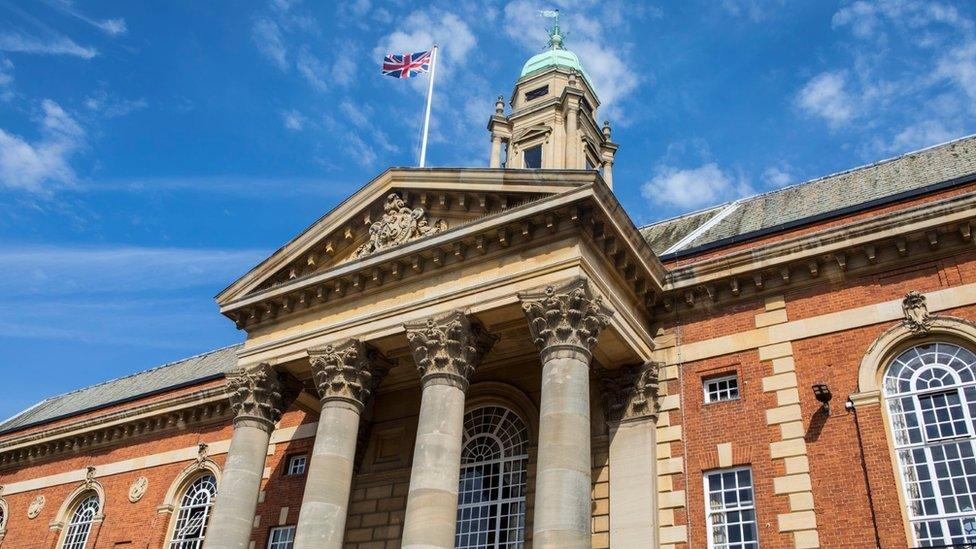MP Hollobone discusses Kettering migrant hotel with minister
- Published
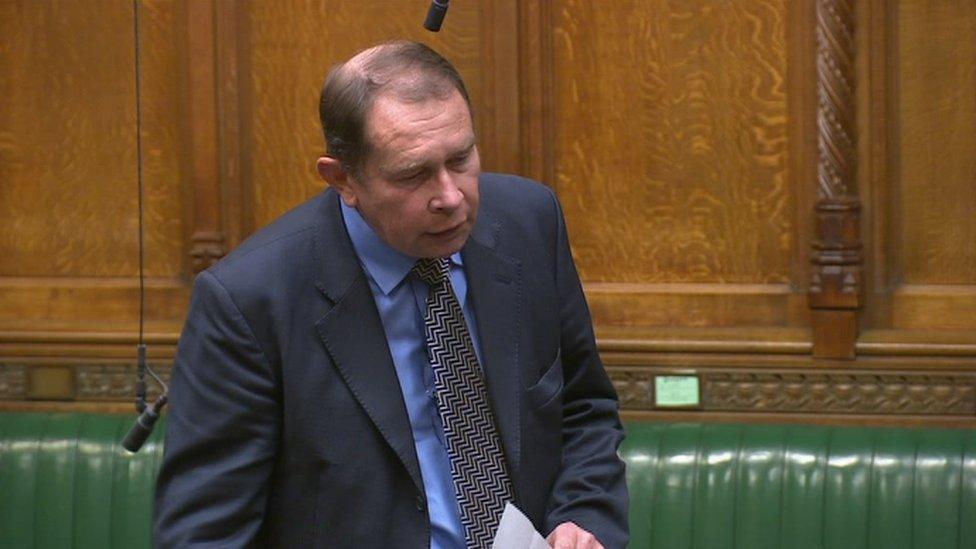
Philip Hollobone met with Robert Jenrick after he told the Commons he had no confidence in the Home Office
An MP said he was no further forward in getting migrants moved from a hotel in his constituency after meeting with the immigration minister.
Kettering MP Philip Hollobone met with Robert Jenrick after saying it was unacceptable that the local council had no notice of the migrants' arrival.
Mr Hollobone said he was told a year's contract had been signed with the hotel, which he called "unsuitable".
But the minister had apologised for the "communications failure", he added.
Last week, Conservative MP Mr Hollobone told the House of Commons that Mr Jenrick "should consider his position" after 41 migrants had been moved into a hotel in the town centre "without any notification at all".
During an urgent question in the Commons, Mr Hollobone said North Northamptonshire Council had raised concerns about the use of the hotel because of mould and a lack of kitchen facilities.
The council had previously failed in its bid for an injunction to stop the Home Office using it as a migrants' hostel.
Mr Hollobone told the BBC there had been a "full and frank exchange of views" at Tuesday's meeting with Mr Jenrick, which was also attended by representatives from the council.
"We left the minister in no doubt about the strength of local feeling on this issue and the unsuitability of this hotel being used as asylum accommodation," he said.
"[But] we haven't really got any further because a contract has been signed with the hotel owners for up to a year."
The MP explained he was told the contract had a 90-day break clause which could only be activated "if alternative accommodation could be found in the area".
"So in the best of circumstances, if all went well they could be out in 90 days' time, but I'm not hugely optimistic about that," Mr Hollobone said.
"There is difficulty in finding suitable accommodation.
"[Mr Jenrick] did say the government really doesn't want to use hotels and in 2023 they're going to be doing their best to move asylum seekers out of hotels into what they call dispersal accommodation."

Martin Heath, political reporter at BBC Radio Northampton
The hotel is now a fully-functioning migrants' hostel.
A chef has been brought in to supervise the catering and there are regular deliveries of food.
Serco, the company which has the contract to house migrants, has a representative on site at all times.
The hotel manager told me people in Kettering were being supportive and offering help. One asylum seeker from Iraq told me that he was happy with the accommodation.
But I also spoke to people who felt that the hotel was unsuitable for the purpose and the town should not be expected to house asylum seekers.

Mr Hollobone said the Home Office had apologised for "not handling [the situation] appropriately".
"It was a genuine apology for the communications failure, but that doesn't really go far enough because we still are where we are," he said.
"I understand that asylum seekers are vulnerable, [and] the local council and other groups are keen to provide support, but they can't do that unless they're given information about the background of these individuals and that simply isn't forthcoming in any reasonable way."
The Home Office said it did not comment on individual sites, but it said the number of people arriving in the UK who required accommodation had "reached record levels and had put our asylum system under incredible strain".
A spokesman said: "The use of hotels to house asylum seekers is unacceptable - there are currently more than 37,000 asylum seekers in hotels costing the UK taxpayer £5.6m a day.
"The use of hotels is a short-term solution and we are working hard with local authorities to find appropriate accommodation."

Find BBC News: East of England on Facebook, external, Instagram, external and Twitter, external. If you have a story suggestion email eastofenglandnews@bbc.co.uk, external
- Published24 November 2022
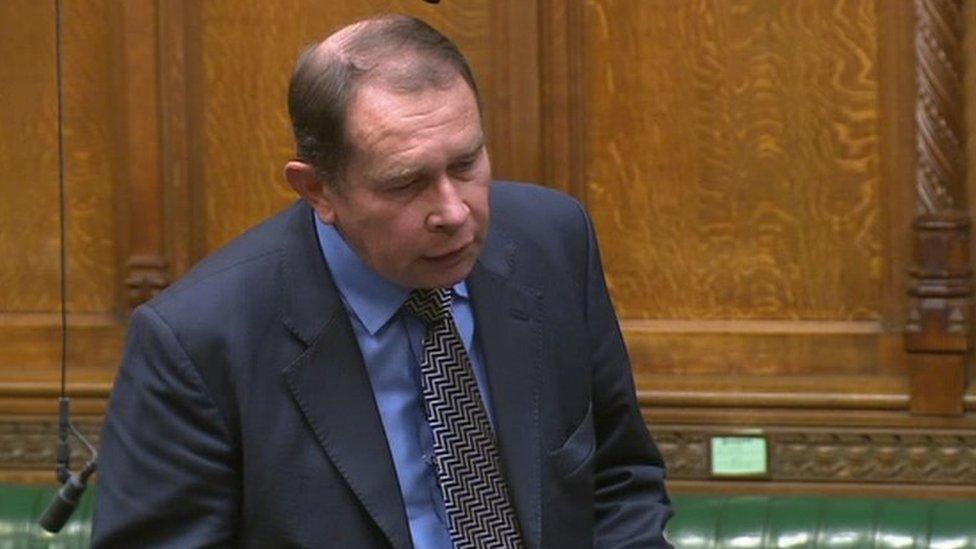
- Published23 November 2022
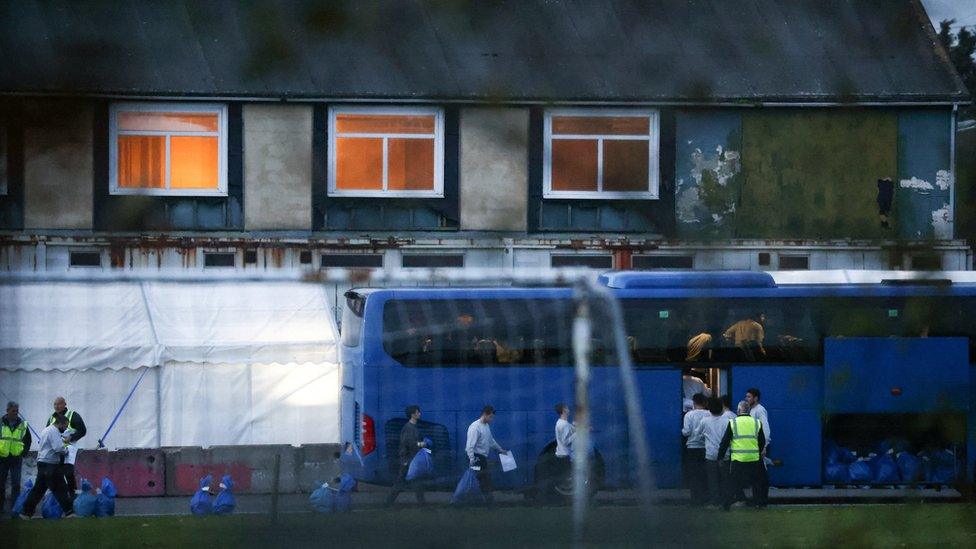
- Published23 November 2022
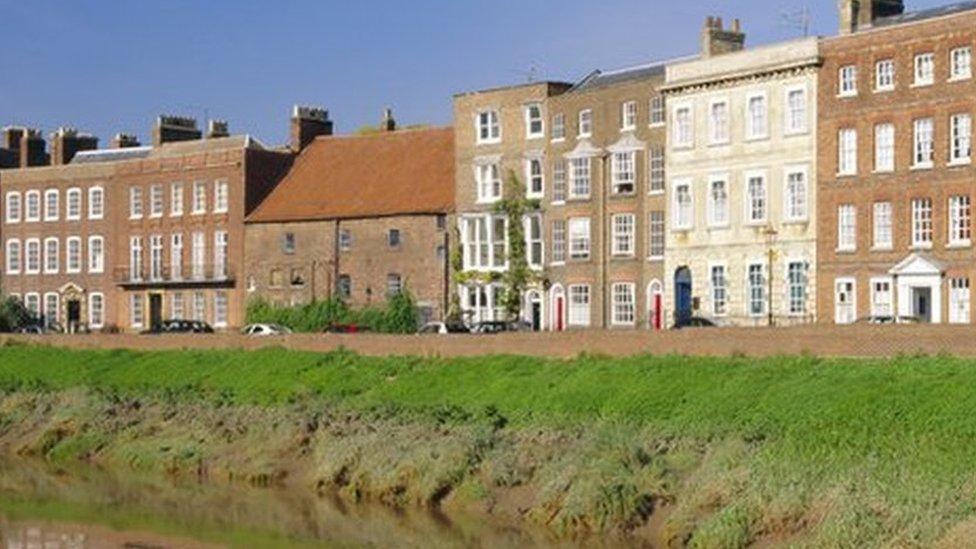
- Published23 November 2022
